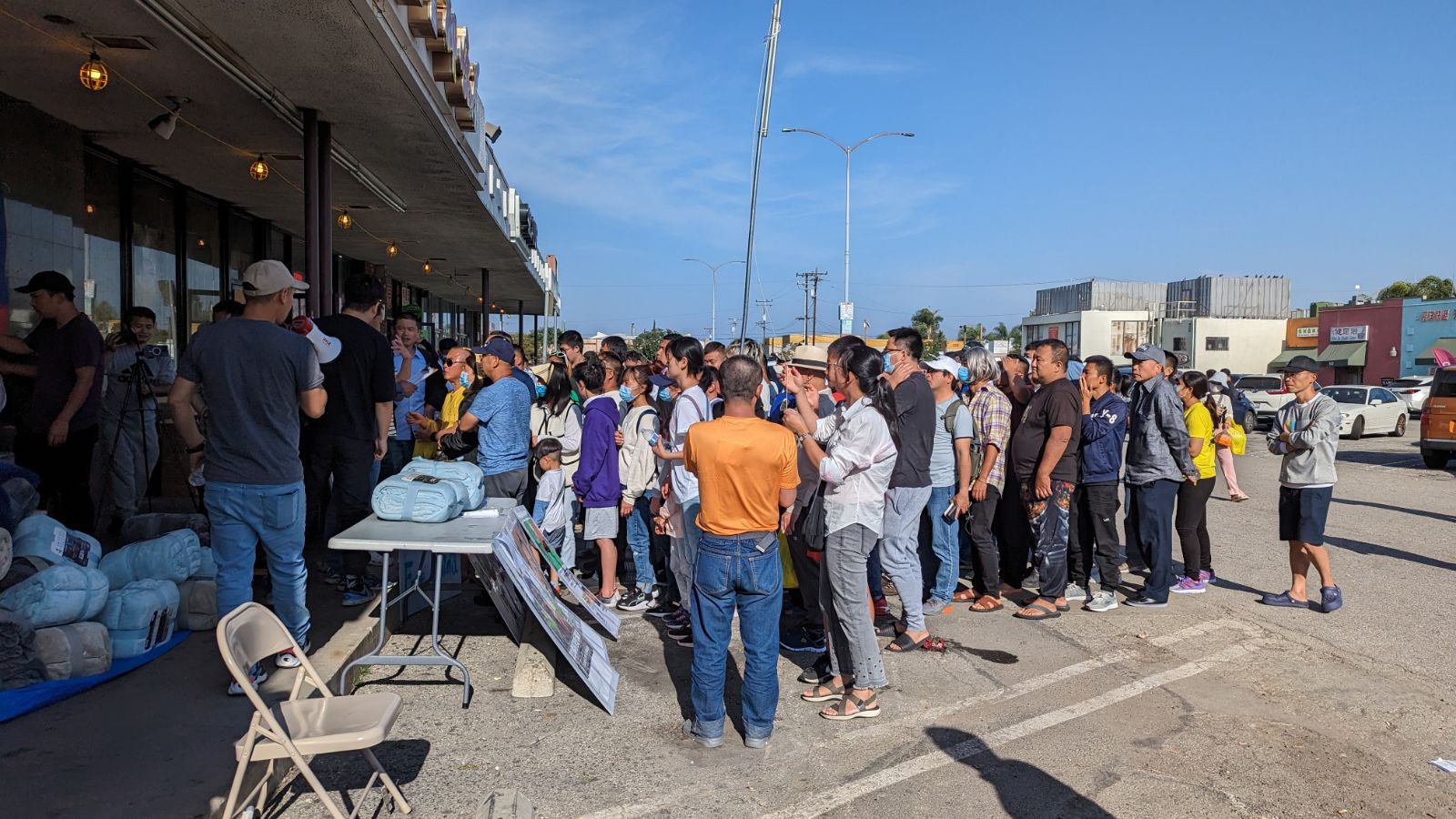More Chinese migrants at the US-Mexico border. But they are also recruited for 'police stations'
Registering over 6,500 as of October 2022, they come from Fujian and Zhejiang provinces in search of better ecomomic opportunities and fleeing regime repression. They arrive in Ecuador without a visa and continue their crossing from there. Some, however, once they obtain visas, are recruited by the Party for actions against other dissidents.
Beijing (AsiaNews) - After the Shanghai lockdown, more and more people have chosen to leave China: in many cases they are activists and dissidents persecuted by the regime, but often those migrating are people seeking better economic opportunities. But in the flow there are also those who end up setting up 'police stations' abroad guarding and oppressing other asylum seekers.
Faced with a bleak labour market, content explaining how to migrate (even illegally) to the United States is trending on the Chinese TikTok, called Douyin. According to data from the US Customs and Border Protection, more than 6,500 Chinese nationals have reached the US-Mexico border since October 2022, a 15-fold increase over the same period last year.
The journey to the US begins in Ecuador, where Chinese citizens can arrive are visa-free. Migrants navigate the rainforest and pass through Central American countries to reach the US-Mexico border.
Until recently, few Chinese citizens chose this more dangerous route to enter the United States illegally, because in addition to the harsh tropical forest environment and disease, migrants are also threatened by the mafia and criminal gangs, risking robbery, extortion and sexual abuse.
Some migrants share their experiences of entering the US on Tiktok and Twitter, even charging a 'consulting fee' when asked for advice on the journey. Once they set foot on US soil, they surrender to border patrol and immediately apply for asylum to avoid deportation.
China is one of the main source countries of immigration to North America and Europe. Migrants come mainly from the coastal areas of Fujian and Zhejiang for tradition and economic reasons, but today more and more Chinese citizens are seeking asylum abroad because of Xi Jinping's control of society and repression of social movements and religious practices. In the three years of the covid-19 pandemic, despite travel restrictions, the number of Chinese asylum seekers worldwide has risen, far more than the total number of applications recorded in the decade of former President Hu Jintao's rule.
Jie Lijian (界立建), an activist who lives in Los Angeles and distributes blankets to Chinese newcomers over the weekend, told AsiaNews that this is a way of welcoming immigrants arriving in the United States in the hope that they will 'abide by US law and respect the values of freedom and democracy'.
There is a large Chinese community in Los Angeles because it is the first stop that illegal migrants make in search of work. Jie has experienced the impact of the increase in Chinese migrants: 'Last year it was very easy to find a job, but now wages are falling and many are out of work'.
Jie has taken in a number of asylum seekers who have fled China, including activists, petitioners and persecuted Christians, although he admitted that most of the time they are economic migrants because the Chinese authorities do not issue passports to dissidents precisely to prohibit them from travelling abroad.
"According to my observations, about 70 per cent sneak into the US through the rainforest for economic reasons. They have their own problems, such as business failure, bankruptcy, gambling and usury. Sometimes they pretend to support social movements and just take a few photos during protests as 'proof'. After being granted asylum, some go back to supporting the Chinese Communist Party and persecute other dissidents,' Jie said.
He cited the example of a group of migrants from Fujian province who, after being granted permanent residence, have now set up 'police stations' in the US, effectively extending the persecution overseas. These nuclei target dissidents by monitoring and harassing victims to force them to return to China. They operate under the cover of expatriate organisations in Fujian and Zhejiang, but are actually controlled by the Chinese police.
In April, the US police arrested two people linked to this kind of transnational repression in New York and the city's Justice Department announced the indictment of 34 Chinese agents. "Chinese 'police stations' have also been identified in major European countries: according to a report by Safeguard Defenders, Italy hosts 11 of them, the highest number.
11/08/2017 20:05
18/02/2016 10:39
12/02/2016 20:22
13/09/2005








.png)










